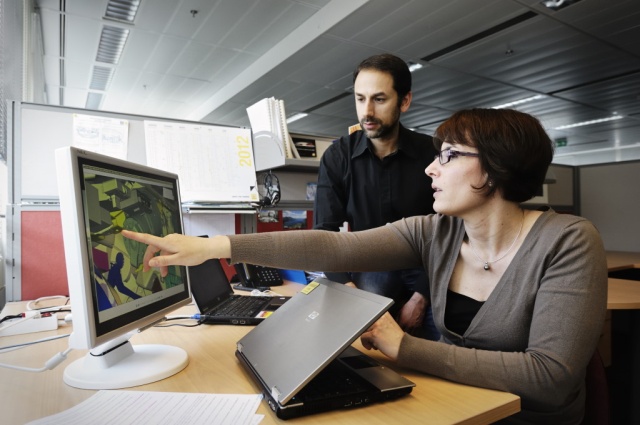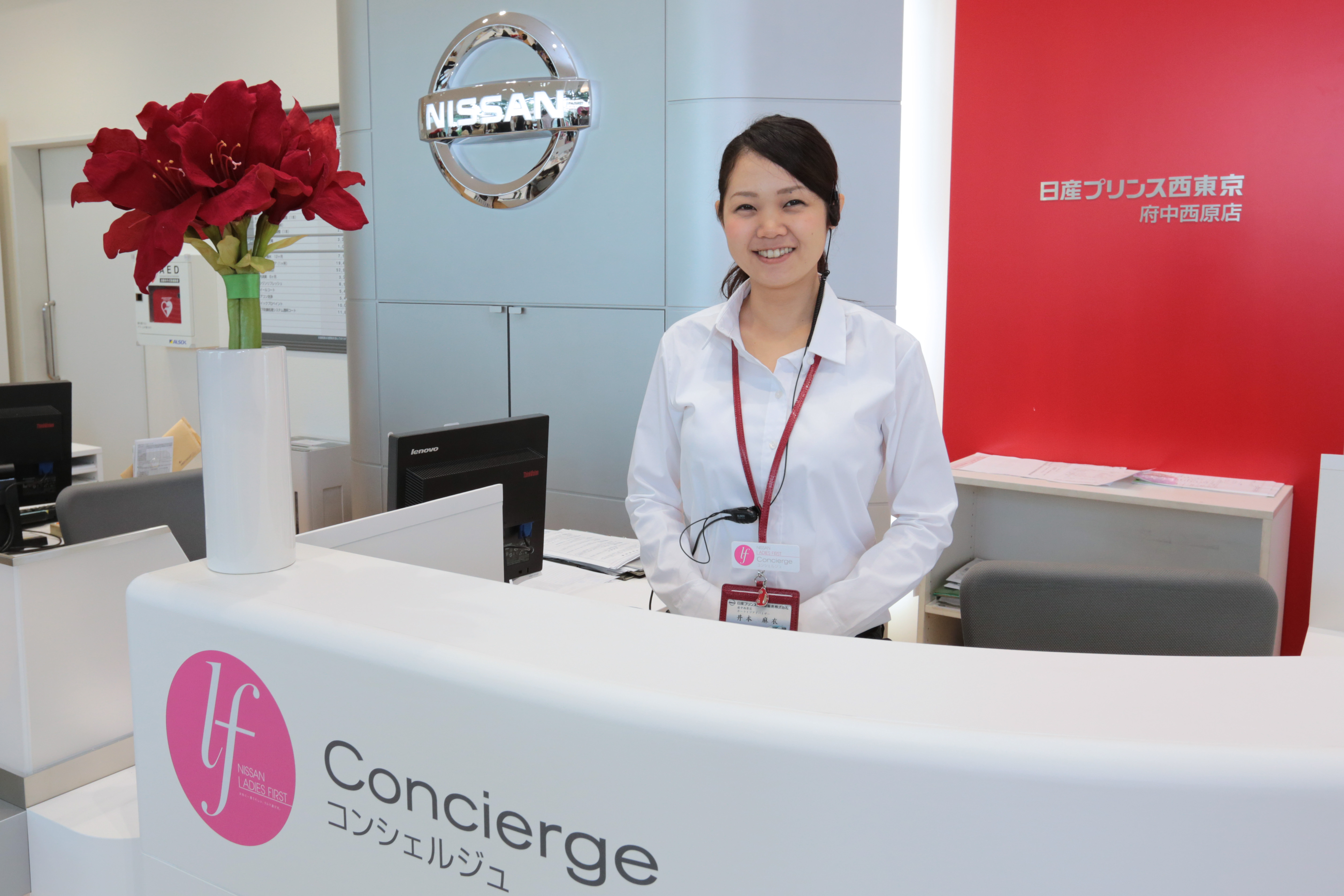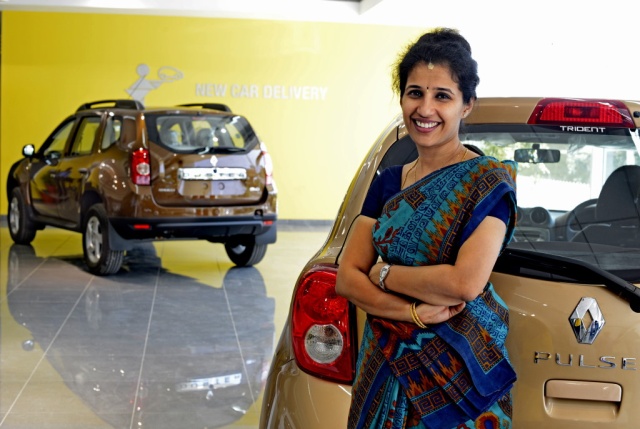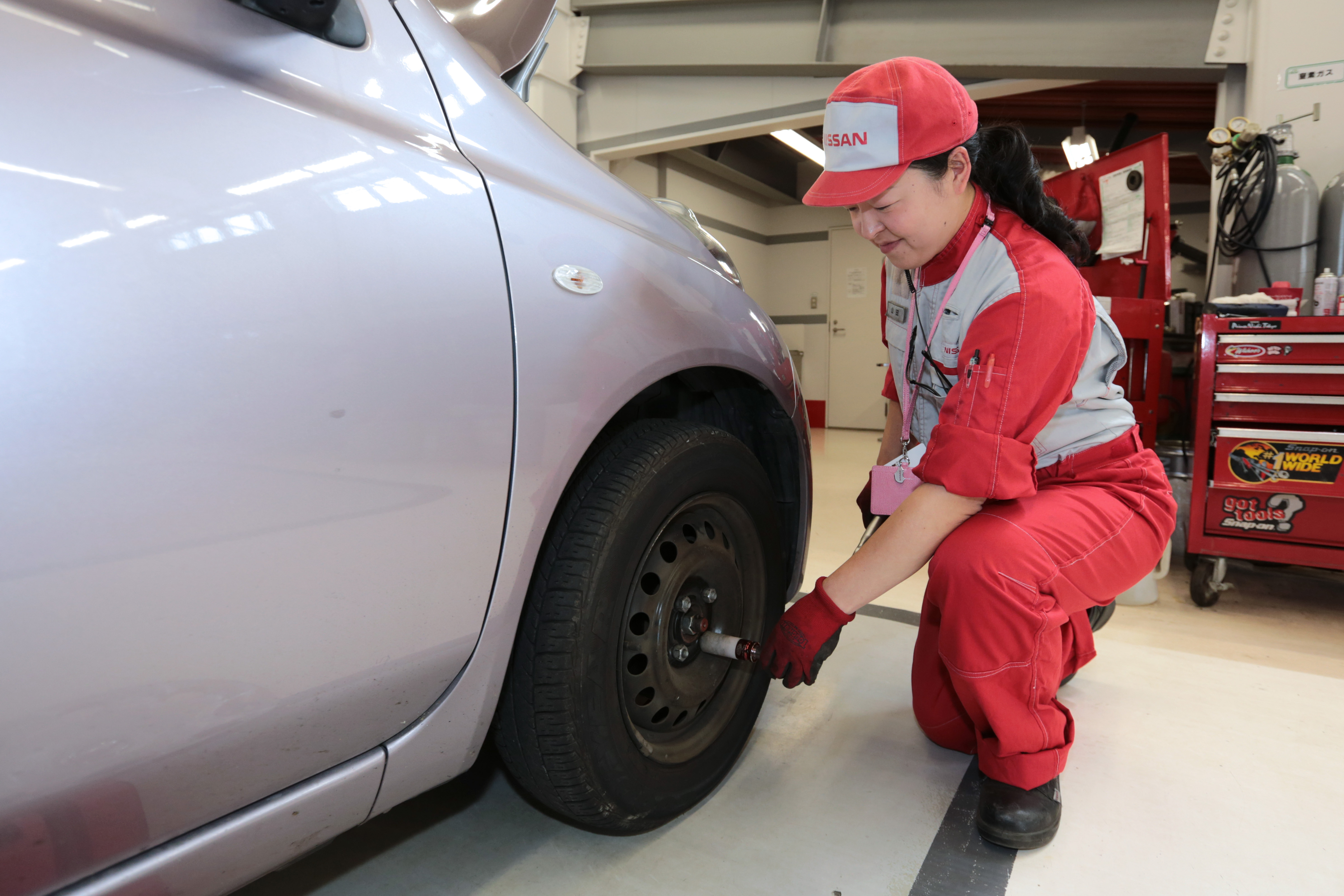Renault-Nissan Alliance press release

- Percentage of women in manager-level positions globally continues to increase year over year
- Renault remains auto industry benchmark for women at the senior executive level; Nissan Japan more than doubles national average for manufacturers
- Renault and Nissan are taking creative approaches to new products, working teams and services to attract buyers
DEAUVILLE, FRANCE (Oct. 13, 2014)—The Renault-Nissan Alliance, the world’s fourth-largest automotive group, continues to make progress in its commitment to closing the gender gap, with both companies reporting a rise in the percentage of women in manager-level positions globally in 2013 compared with the previous year.
At Renault, women accounted for 18.4% of manager-level positions globally in 2013, up from 17% in the previous year. Women also accounted for 19.3% of the company’s 2,000 global key positions, up from 17% in 2012.

Globally, Renault remains a leader in the auto industry in terms of women at the senior executive management level. Two out of its ten-member executive committee are women: Mouna Sepehri, Executive Vice President of the Office of the CEO; and Marie-Françoise Damesin, Executive Vice President for Human Resources. Damesin is also Renault-Nissan Alliance Executive Vice President for Human Resources.
At Nissan, women accounted for 10.6% of manager-level positions globally in fiscal year 2013*, up from 10.3% in fiscal year 2012. In Japan, women at Nissan accounted for 7.1% of such positions, up from 6.8% in the previous year and more than quadruple from 1.6% in fiscal year 2004. By 2017, Nissan aims to raise that figure to 10% in Japan and to 14% globally.

Nissan remains an industry benchmark in its home market of Japan, with the percentage of its women managers more than double the national average for large manufacturers. In March, Nissan was recognized as a “Nadeshiko Brand” by the Tokyo Stock Exchange (TSE) for the second year in a row for its support and promotion of women in the workplace.
“The Renault-Nissan Alliance remains committed to fully leveraging our global talent pool and closing the gender gap, and we are seeing incremental progress toward that goal every year,” said Renault-Nissan Chairman and CEO Carlos Ghosn. “Hiring and promoting women is the right thing to do for society – and for our business, because women decide or influence the overwhelming majority of car purchases globally.”

Products, services and mentorship for women to drive business
Women are considered “influencers” on 80% of all new-car purchases, according to consulting firm Frost & Sullivan, meaning that they either buy the vehicle outright or have “veto power” on a man’s purchase.
To increase the appeal to women, Renault created a product team for the Renault Captur that was evenly split between men and women. Half of the team members dedicated to the crossover’s engineering, design, marketing and sales were women, the highest for any Renault car. Captur went on sale last year and is today the most popular compact crossover in Europe.
In addition to product initiatives, Renault is also expanding an internal social network called Women@Renault, founded in 2012 and led by Mouna Sepehri. The network is a digital and real-world community in which to discuss gender progress, and it also analyzes best practices around recruitment, training and career management. Women@Renault has 4,500 members in 12 key markets (Algeria, Argentina, Brazil, Colombia, France, India, Korea, Morocco, Romania, Russia, Spain and Turkey).
Earlier this year, Nissan debuted its “Ladies First” dealership, mostly managed and staffed by women. The dealership in the Tokyo suburb of Fuchu features stylish interiors, a nursing room and a spacious area where children can play and is aimed at making the shopping experience more welcoming to women and first-time buyers.
Nissan will roll out 300 “Ladies First” dealerships across Japan by next year. Nissan will take lessons learned from the “Ladies First” project and apply it wherever applicable.


Diverse executive management teams

In addition to becoming more gender diverse, Renault and Nissan are becoming more multicultural – particularly at the executive level, reflecting the geographic reach of both companies. Together Renault and Nissan sold 8.3 million vehicles in 2013 in nearly 200 markets worldwide.
Boulogne Billancourt, France-based Renault today counts 20 nationalities among its key 150 executive positions globally, including French, Spanish, Japanese, Brazilian, Russian and German executives.
Yokohama, Japan-based Nissan continues to be the auto industry leader for diversity at the executive rank. Forty-nine of its 100 top positions are held by foreign-born executives from 17 different countries.
Renault-Nissan to discuss diversity at international conference
Renault and Nissan provide an update on gender progress and diversity every year in advance of the Women’s Forum for the Economy and Society. This year’s conference takes place Oct. 15-17 in Deauville, France. The annual gathering, which the Alliance has supported since 2006, aims to level the playing field for women in industry academia, politics and society.

The Renault-Nissan Alliance will have three public speakers at this year’s event, which has a special focus on gender issues in Japan:
■ Oct. 16: The Renault-Nissan Alliance will host a session on “What Women Want” with Asako Hoshino, Corporate Vice President of Corporate Market Intelligence at Nissan Motor Co., Ltd., and Valerie Brusseau, Architecture Design & Trim and Chassis Manufacturing of New Vehicle Launches, at Renault SAS.
■ Oct. 17: Marie-Françoise Damesin, Executive Vice President, Human Resources at the Renault-Nissan Alliance, will participate in the plenary session “Abe's Womenomics: Why it's needed -- and not just in Japan.”
In April 2014, Marie-Françoise Damesin was appointed Renault-Nissan Alliance Executive Vice President for Human Resources, while maintaining her role as Renault Executive Vice President for Human Resources. The expanded position puts her in charge of HR policies for 450,000 people throughout the Alliance. Among other responsibilities, she focuses on increasing diversity through talent management and takes a particular interest in the careers of “high potential” women professionals moving into regional or global leadership roles.
For more information on Renault’s diversity initiatives, go to: www.renault.com/en/groupe/developpement-durable/responsabilite-sociale-de-l-entreprise/pages/diversite.asp
For more information on Nissan’s diversity initiatives, go to: www.nissan-global.com/EN/COMPANY/DIVERSITY
*Nissan’s fiscal year starts in April and ends in March.
About the Renault-Nissan Alliance
The Renault-Nissan Alliance is a strategic partnership between Paris-based Renault and Yokohama, Japan-based Nissan, which together sell one in 10 cars worldwide. The companies, which have been strategic partners since 1999, sold 8.3 million cars in nearly 200 countries in 2013. The Alliance also operates strategic collaborations with automakers including Germany’s Daimler, China’s Dongfeng, and India’s Ashok Leyland and recently took a majority stake in Russia’s top automaker, AVTOVAZ.
blog.alliance-renault-nissan.com
Contacts:
Mia Nielsen
Renault-Nissan Alliance
Alejandra Kaufman
Renault SAS
Toshitake Inoshita
Nissan Motor Co., Ltd.




